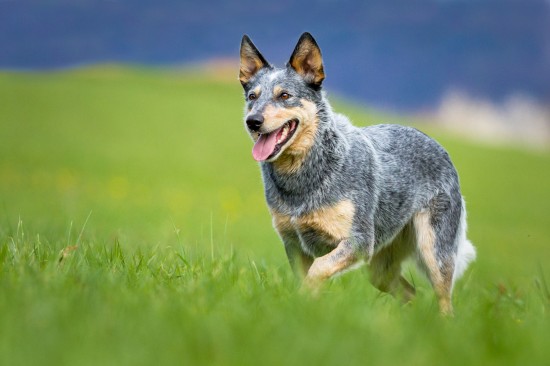Older dogs have different needs than younger dogs. However, that does not mean you should immediately switch them to "senior dog food" once they reach their golden years. This article will serve as your guide to feeding your senior dogs.
The nutritional needs of your older dogs differ from those of your puppies or other younger dogs. The question is when do you consider a dog a senior? Generally, a dog can be considered a senior once he turns 7 years old. The problem doesn't end there, however, since different breeds have different life expectancies. Small sized to medium sized dogs, for instance, do not show any signs of aging when they turn 7 years of age and can live up to 15 years or more.
Even dogs of the same breeds can age at different rates. All this, of course, depends on how fast the dog's system deteriorates. If you want to successfully determine the right time for your dog to be considered a senior and may require a change of diet, an annual health exam may be able to help you. One particular test you should include in your dog's test is blood work, and make sure you include it as early as possible so that the information you can gather will be more accurate.
Now, there are several reasons why older dogs have different nutritional needs from that of younger dogs and why they need a change of diet once they reach their senior years. First, older dogs have decreased activity levels and slower metabolism, which means there are some ingredients in their former diet they won't need any longer. Second, most dogs begin to develop mobility and joint issues when they get older and this means they need special nutrition, which they can only get from a diet designed only for senior dogs. Moreover, older dogs have decreased digestive efficiency, decreased immune function, and declining dental health, and only dog food formulated for senior dogs can deal with such issues.
Many dog food companies and even some vets today suggest that senior dogs be fed with low-protein and low-fat dog food. They claim high-protein and high-fat food are bad for older dogs and their kidney health. Nothing could be further from the truth, though, as recent studies suggest that as long as the dog is healthy and has no health issues whatsoever, there is no need for protein or fat reduction from its diet. In fact, studies suggest that senior dogs with high levels of protein in their diet remain healthier longer than senior dogs that are on low-protein diets. Not only that, it has only been found that senior dogs have an increase in mortality rate after two to three years of being fed with low-protein diet.
Now, there is nothing wrong with feeding your older dogs with low-protein dog foods. However, you have to take into consideration the individual needs of your dogs. This is the key to choosing the right food for your senior dogs. If your dog has reached his senior years, but shows no special needs when it comes to its diet, there is no reason why you should switch to a senior dog food just yet. About weight gain problems, you can simply address the problem by decreasing the daily calorie intake of your dog instead of switching dog foods. Meanwhile, you can find more on dog food online by checking out the AussieVetProducts website.

 Breeding From Your Dog - Caring For The Dam After The Birth
Breeding From You
Breeding From Your Dog - Caring For The Dam After The Birth
Breeding From You
 Staying Safe When Out Riding Your Pony On Roads
Staying Safe When
Staying Safe When Out Riding Your Pony On Roads
Staying Safe When
 Heeler Or Australian Cattle Dog Traits And Temperament
Heeler Or Austral
Heeler Or Australian Cattle Dog Traits And Temperament
Heeler Or Austral
 How To Make Your Dog’s Christmas Day The Best One Ever
How To Make Your
How To Make Your Dog’s Christmas Day The Best One Ever
How To Make Your
 Common Dog Health Problems & How To Deal With Them
Common Dog Health
Common Dog Health Problems & How To Deal With Them
Common Dog Health